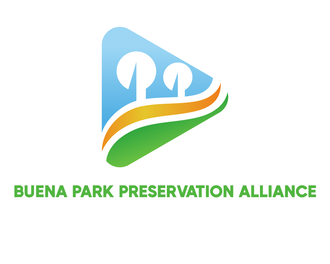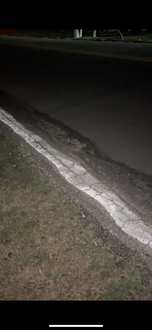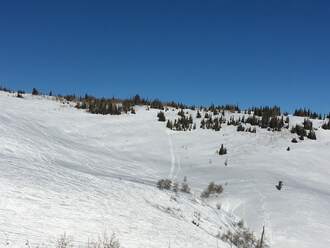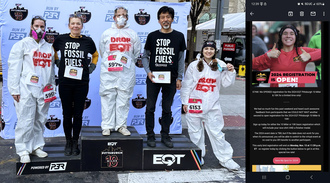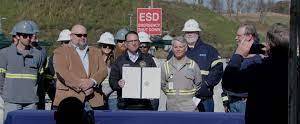-
Protect Public Park Spaces in Buena Park/46th Ward That Are Being NeglectedBetween 2019 and 2024, the condition of the park spaces, particularly along Marine Drive between Irving Park Road and Wilson Avenue, have deteriorated significantly. Tent encampments have now overtaken public spaces; the homeless chase away concerned citizens and defecate between nearby parked cars. Large, grassy areas that were once beautiful have disappeared. Sidewalks are blocked underneath DLSD from an increased number of tents; the overall conditions have worsened and are inhumane. Photo documentation has been provided to the Alderperson’s office that shows: • Illegal drug sales and usage • Illegal propane tanks which have led to several fires underneath DLSD • Garbage and human waste in public areas • Theft; e.g. materials removed from local businesses’ property • Rodent infestation Without action from Alderperson Clay, who is directly responsible for enforcing pre-established codes with the Chicago Parks Department and for activating requests with the Streets and Sanitation Department and the Department of Family and Social Services, the condition of public park spaces will continue to deteriorate. The number of encampments will spike in the forthcoming warmer months and continue through the remainder of the year. Our public park spaces should be responsibly protected to provide access for all residents. Illegal activity should not be allowed. The homeless should be re-housed rapidly and provided access to services, instead of being allowed to linger unlawfully, which prevents area residents and the public at large from enjoying easy access during designated hours to park spaces or to the lakefront via public sidewalks.91 of 100 SignaturesCreated by Buena Park Preservation Alliance Chicago
-
Greentown against the roundaboutOur intersection of State st and Cleveland Ave NW has a long history of being the Greentown Square. It is the home of great businesses, holiday gatherings, and parades. During construction it would be very inconvenient for all of our residents that use this intersection multiple times a day. Any detours created could make our neighborhood side streets very busy and dangerous with extra traffic. Our side streets are narrow as it is and when the widening of Cleveland Ave happened in the late 90s our side streets became cut through routes for a lot of traffic. They became dangerous as they were unpatroled. None of our residents are willing to sacrifice the safety of our neighborhoods for a roundabout that we weren't interested in to begin with.945 of 1,000 SignaturesCreated by Robert Pavkov III
-
Rep. David Trone says "Who cares about that little cemetery?" We Do and We Vote!Why was Congressman Trone so dismissive, insulting and ignorant in his interaction with Dr. Marsha Adebayo at a recent MLK event. She asked to talk to him about the Bethesda Road Moses African Cemetery and efforts to reclaim the land to memorialize the lives of enslaved and post-emancipated African Community. Instead of engaging, he dismissed her with a wave of his hand and a turn of his back saying" who cares about that little cemetery?" I care about that "little Cemetery," and I don't care to have a person with David Trone's historical ignorance and dismissiveness towards African American struggles influencing our community. The people in the "little cemetery were human beings and they deserve respect. Most of those buried in the "little" cemetery were children who were kidnapped, raped, murdered and worked to death in Bethesda, Maryland. Why are we still debating whether Black Lives Matter? We need the community to speak out against Congressman Trone's statement. David Mott - retired union organizer, Poor People's Campaign, Montgomery County Contact: bethesdaafricancemeterycoalition.net485 of 500 SignaturesCreated by Marsha Adebayo
-
PS 287 Speed BumpsWe need to ensure safety of all community members. We also want to prevent another tragedy involving small children. We are to protect them and advocate for the little voices who need to be heard.15 of 100 SignaturesCreated by Christine George
-
VACANT BUILDINGS TO BE USED FOR THE UNHOUSEDUnhoused people are human and deserve all the same rights as a person that does have a space to live. If you want to have the downtown areas clean and sanitized. People need a shelter, a building, a place they feel safe that will provide them with the basic needs of a human being.254 of 300 SignaturesCreated by carol dowling
-
Repair the Killingsworth Lane Road / Property of TNRThis petition is important because it will add a more quality and safer road worth traveling on.82 of 100 SignaturesCreated by Emilio Lopez
-
Urgent Action Required for Powder Mountain's Compliance with Zoning and Public AccessThe privatization sets a precedent for the resort to pursue further privatizations in the future if gone unchecked!922 of 1,000 SignaturesCreated by Save PowMow
-
Investigate ExxonMobil Acquisition and Stop Big Oil From Getting Bigger!A majority of the people in the United States are concerned about climate change as a “major threat” to our country. The U.N.'s Intergovernmental Panel on Climate Change reported that about 70% of global greenhouse gas emissions are from burning fossil fuels—yet Big Oil continues to prioritize profits over our planet's future. ExxonMobil spreads disinformation and denies climate change to cover up Big Oil’s complicity. A former Exxon chief executive even said, “I’m not convinced that the earth is warming at all.” Allowing Big Oil to get even bigger is a threat to our climate, democracy, and future. Our government has a responsibility to rein in mergers and acquisitions like this to prevent monopolies and prioritize people. We must prevent this dangerous takeover and protect our interests. Let Big Oil know that we are watching. Launch an investigation ASAP!472 of 500 SignaturesCreated by Aliya Khan
-
Drop EQT!Should a company that pollutes our air be promoted at a fitness event? We don't think so. EQT is one of the largest fracking companies in America. With over 2,400 wells across Pennsylvania, they pollute our air & water with toxic radioactive pollution and contribute to global climate change with significant methane emissions. A recent Pitt study found that Pennsylvanians living near fracking wells are 4-5x more likely to have an asthma attack, and kids living within 1 mile are 5-7x more likely to develop lymphoma. (https://www.alleghenyfront.org/pitt-researchers-find-higher-risks-for-lymphoma-and-asthma-for-those-near-fracking-but-no-association-to-ewing-sarcoma/) Just last year, EQT's activities in Greene County caused a frackout (dangerous fracking fluids entered an older abandoned well and shot out the top of it). Afterward, residents reported a change in their drinking and bathing water (supplied by local well water). People got sick and the child of one resident broke out in hives after showering. Over 1 year later, EQT has yet to take responsibility and residents must rely on jugs of water being regularly brought into town. (https://www.publicsource.org/fracking-new-freeport-greene-county-pa-water-quality-eqt-corporation/) Despite all this, EQT has been the main sponsor of Pittsburgh's annual 10 Miler race for years. EQT's damage to communities in our region and to the global climate make it incompatible with an organization like P3R, which focuses on encouraging fitness and healthy lifestyles. A running event sponsored by a corporation that increases asthma and cancer rates is both shocking and oxymoronic. You wouldn't want a tobacco company sponsoring a marathon. Why should a fracking company sponsor a 10 mile race? We can't run on a polluted planet. . . . P3R is a non-profit that organizes sporting events in the Pittsburgh area. Learn more about them here: https://p3r.org This campaign is organized by activists associated with Ohio Valley Environmental Resistance (OVER) and Pennsylvania Action on Climate (PAC)55 of 100 SignaturesCreated by Matt Nemeth
-
Governor Shapiro, Ditch the DealThe statements in the petition are excerpts from a letter the Better Path Coalition is circulating for signatures from organizations and individuals. This petition is a companion to that letter and will be delivered at the same time. Read the full letter at bit.ly/ditchthedeal.1,192 of 2,000 SignaturesCreated by Karen Feridun
-
We Don't Need More Evidence. We Need a Ban on Fracking.We encourage everyone to read the Compendium's Summary of Findings and to encourage your governor and state legislators to read it closely. https://concernedhealthny.org/compendium/ The photo was taken on October 2 at the People's Hearing on Climate Change when people from across the state testified for four and a half hours on the harms they have already suffered and the need for action on climate. Governor Shapiro, every legislator, and their staff were invited to attend the hearing just steps from their offices. We can count on one hand how many even stopped by.3,003 of 4,000 SignaturesCreated by Karen Feridun
-
Look Twice, Save a LifeNo one should have to bury their loved ones because of someone else’s lack of concern.1,048 of 2,000 SignaturesCreated by Justyna Micun

